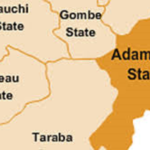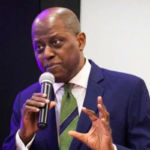The Governor of the Central Bank of Nigeria (CBN), Mr Godwin Emefiele, has said the country’s infrastructure has to grow by at least between five and seven percent for it to stimulate productivity and sustainable growth for businesses.
Mr. Emefiele who was represented by the apex bank’s Director of Corporate Communication, Mr Osita Nwasinobi, made this disclosure in his keynote address at the Finance Correspondents Association of Nigeria’s (FICAN) 30th anniversary conference and awards which had the theme: “Financing Infrastructure and SMEs for Inclusive Growth in the Post-COVID-19 Economy,” in Lagos on Saturday.
He explained that although the Micro, Small, and Medium Enterprises (MSMEs) as a sector has been a major driver of the growth of the economy, innovation, and job creation, its potential to spur growth and create jobs has been hampered by lack of access to quality infrastructure.
The CBN governor noted that though countries in sub-Saharan Africa had been spending about six to 12 percent of their GDP annually on infrastructure, Nigeria is projected to need $100bn investment to fix its infrastructural gap annually for the next 30 years which was currently estimated to be about 1.2 per cent of its GDP.
“Beyond infrastructure, access to finance remains one of the biggest threats to MSME development in both developed and developing economies alike, with serious implications for productivity, economic development and job creation,” Emefiele said.
Meanwhile, he revealed that the apex bank had put in place several policy measures to stimulate economic growth and reduce the impact of the COVID-19 pandemic on Nigerians and that its intervention effort represented about 3.5 percent of the GDP.
The Managing Director of Heritage Bank, Mr Ifie Sekibo, who was represented by Olusegun Akanji, Divisional Head, Strategy and Business Solutions, argued that the government could not solve the country’s infrastructure challenges, noting that it was the private sector that should deliver the solution.
“The government can only provide enabling policies that will support private sector interventions. We need the global private sector intervention to help us achieve a vision of infrastructural development,” he said.
Mr Bola Koko, MD of FMDQ Group, represented by Yomi Osinubi, Head Private Market, urged Nigeria to conceive a way its domestic capital market could fund the international capital market.
“If we want to pluck our infrastructure rewards, first of all, we have to conceive a way our domestic capital market can actually fund the capital market,” he noted.
Mr Temidayo Obisan, Executive Commissioner representing the Director-General of the Securities and Exchange Commission, advised that Nigeria should fund its infrastructure with the right type of capital.
“The major thing to identify is that infrastructure is a long-term thing, so it is essential we connect the right duration of money which is long-term capital which is what capital market provides and which SEC as a regulator should,” he said.
Chairman of FICAN, Titus Chima Nwokoji, said if Nigeria’s infrastructural gap, estimated to be N36tn annually, was addressed, a lot of the country’s economic challenges would be easily tackled.
“Coming out of COVID-19 pandemic, we know that if the infrastructure is fixed and SMEs thrive, the growth that you will see will be faster.”




